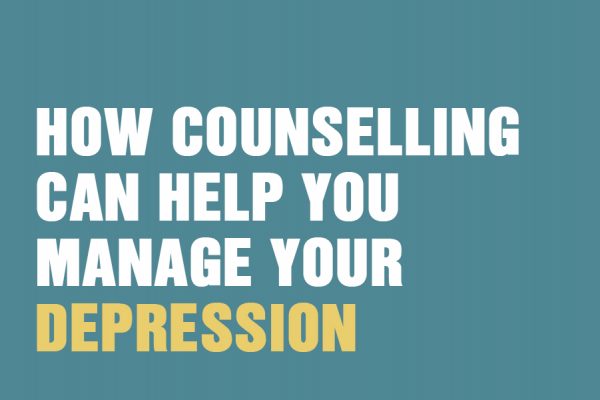The stages of a relationship can go like this: You meet. You form an instant attachment. You fall in love. You decide you can’t live without each other. You make a firm commitment to live together or get married.
For couples swept up in a whirlwind romance, those stages can happen within weeks or months. Partners declare their love to the world very quickly, and then sprint down the aisle towards a life of wedded bliss. Except it doesn’t always last a lifetime, as shown by the recently reported split between Cheryl and Jean-Bernard Fernandez-Versini – who married after knowing each other for a matter of months, and separated after 18 months of marriage, citing irreconcilable differences. So, can a whirlwind romance ever last? Can love at first sight lead to happy ever after?
Understanding the stages of relationships can give some insight into where you are in your partnership, and what to do if cracks start to show.
The romance stage of a relationship
The romance stage, at the very beginning, is exciting and intoxicating. You’ll want to spend all your time with your new partner, forging ever-closer physical and emotional bonds, ignoring any faults, and generally feeling flushed with love. You’ll begin to say ‘we’ instead of ‘I’, as you begin to hope and feel the other person meets all your needs. There may be a sense of wanting to ‘merge’ as one. The attachment patterns you formed as a child (generally, a need for closeness/intimacy, or a need for separation/autonomy) may play out in this new romantic relationship. But you may not be aware of those patterns just yet. Not while you’re busy looking adoringly into each other’s eyes.
The disillusionment stage of a relationship
When the romance stage starts to dissipate, the seemingly strong foundations to the relationship can start to crumble. Disillusionment can kick in as you realise your other half isn’t quite so perfect. Maybe you don’t laugh at the same things any more. Perhaps your partner’s cute little quirks start to become annoying. You may start to fear that your partner can’t meet all your needs after all. You might want to spend more time with your friends again, needing some time apart from your relationship. Or you may worry that your partner doesn’t love you enough and you start to become clingy.
The ‘power struggle’ stage of a relationship
It’s often the need for intimacy (together time) versus the need for autonomy (alone time) where the power struggle in a relationship can start. One partner’s attachment style means he or she needs to be close to feel OK. The other partner may need more time alone to feel OK. You may have projected the idea of your perfect partner onto your real partner, and the real person may not be able to live up to that ideal. Often, this ‘power struggle’ stage sees the playing out of childhood wounds and needs that were never met by early caregivers.
It can be disappointing and distressing when the honeymoon period is over and disillusionment sets in. The power struggle can leave one person resentful and suffocated, and the other person feeling lonely and abandoned. For some couples, it’s too much and they abandon ship before ever reaching shore. For others, it can be a time to take stock and talk to each other to negotiate where things go next. If you’re the partner needing autonomy, it may be time to take a step towards intimacy and arranging to spend more time together as a couple. If you’re the partner needing intimacy, it may be time to allow the other person some breathing space. In other words, it may be about putting your own needs to one side in order to understand what the other person wants from the relationship. It may involve acknowledging that you are both different, and find ways to manage the inevitable conflicts that will arise.
How couples counselling can help a relationship in crisis
It can take at least two years for an intimate relationship to become established. The expectations of a whirlwind romance may not last. It may be difficult to come to terms with the romance stage being over, but that doesn’t mean you have to let your relationship drown in the disillusionment stage. However, if you find yourself tempted to throw in the towel, it sounds as though you could benefit from seeing a couples counsellor.
Couples counselling can offer a life raft to a relationship that seems to be sinking, and help you negotiate the power struggle stage. A couples counsellor can facilitate the process of helping you both get to know one another on a deeper, truer level – now that the ‘ideal’ mask of the romance stage has slipped, it could be time to reveal the real you. Couples counselling can help you understand your differences and your similarities – so, for example, you can feel more sympathetic when your partner needs more alone time and you need more together time. You can come up with an agreed plan so you both feel loved and supported, without resentment creeping in because you don’t feel your needs are being met. It’s about working as a team, agreeing what works for both of you, rather than taking up rival corners in the ring and scoring points off each other.
Couples counselling, crucially, can help you with communication issues. Learning tips and techniques to communicate with each other warmly and effectively –rather than escalating into argument – can go a long way to building stronger foundations for your future together. At the heart of any successful relationship is the bond of emotional trust between you. Couples counselling can help you navigate the waters of trust and mistrust, to agree a framework that helps you both feel secure and also free to be yourselves within your partnership.
Support is out there, so don’t let the power struggle stage eclipse what’s good about your relationship. Couples counselling can not only help you through this difficult phase, but the process can help you remember why you fell in love with each other in the first place.
To find out more about couples counselling at The Awareness Centre, call 020 8673 4545 or email [email protected]







